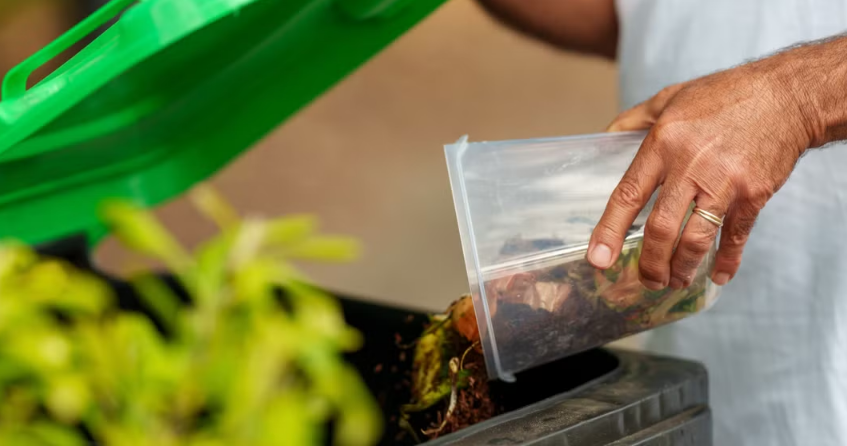A year after launching its food and garden organics (FOGO) kerbside collection service across key townships, Hepburn Shire Council has reported strong results in landfill reduction, environmental benefits, and positive community engagement.
According to a 12-month review presented to Council this month, the weekly FOGO service—rolled out in Creswick, Clunes, Daylesford, Hepburn, Hepburn Springs and Trentham in April 2024—has led to a 24% reduction in landfill waste and helped achieve a landfill diversion rate of 57.3%.
In total, 1,264 tonnes of organic waste were collected and composted in the first year, avoiding an estimated 790 tonnes of CO₂-equivalent emissions. Council officers also reported a relatively low contamination rate of 2.75%, indicating that most residents are using the service correctly.
The service forms part of Council’s broader shift to a circular economy, aligning with the Sustainable Hepburn Strategy and upcoming requirements under Victoria’s Circular Economy (Waste Reduction and Recycling) Act 2021, which mandates all councils provide separate food and garden waste collection by 2027.
Community feedback, gathered through a Resource Recovery survey conducted in May, shows broad support for the FOGO rollout. Among residents who receive the weekly organics and fortnightly landfill and recycling service:
- 71% were satisfied with their kerbside waste service overall.
- 75% felt bin capacities were adequate.
- 65% were satisfied with the organics bin service specifically, while about 33% expressed concerns about its capacity.
- 91% said they understood what could go in each bin.
The Council also heard from a deliberative engagement panel of 35 residents, who prioritised environmental protection and cost-effective service over the addition of more bins or complicated systems.
Despite these positive signs, 40% of the material in a typical landfill bin could still be diverted to either recycling or organics bins. “Correct sorting could free up landfill bin capacity significantly,” the report notes, especially for larger households. Residents who require additional bins can apply for them at an extra cost.
The current service model—weekly organics collection with fortnightly landfill—is also the most cost-effective, costing $270 per household per year. In contrast, reintroducing weekly landfill pickup could add up to $65 to household waste charges annually.
Council officers warned that with Victoria’s landfill capacity expected to be exhausted by the mid-2030s, and the State landfill levy doubling over the last five years, landfill costs will only continue to rise. Diverting waste now not only reduces greenhouse gas emissions but also shields ratepayers from future cost increases.
Council is now looking to expand the benefits of the FOGO service even further. As part of its ongoing strategy, it plans to:
- Continue education and engagement efforts to improve bin usage and reduce contamination;
- Trial soft plastics and textile collection at transfer stations in 2025–2026;
- Encourage reusable products with vouchers for cloth nappies, menstrual products and pet composters;
- Explore expanded compost use in public spaces and potentially for community use.
While the service currently covers urban townships, some rural residents have expressed interest in receiving organics collection. Council says a shire-wide rollout would help lift diversion rates even higher—potentially up to the State Government’s target of 80% diversion by 2030.
The FOGO program is a key part of Hepburn’s commitment to responsible environmental management and community wellbeing, as outlined in its Council Plan 2025–2029. The 12-month review highlights that while there is room for improvement, the transition is well underway, and the community is on board.
Council will vote on whether to endorse continued refinement and expansion of the service at its meeting on Tuesday, 29 July.
This article is based on a report in the Council Agenda and Papers.





